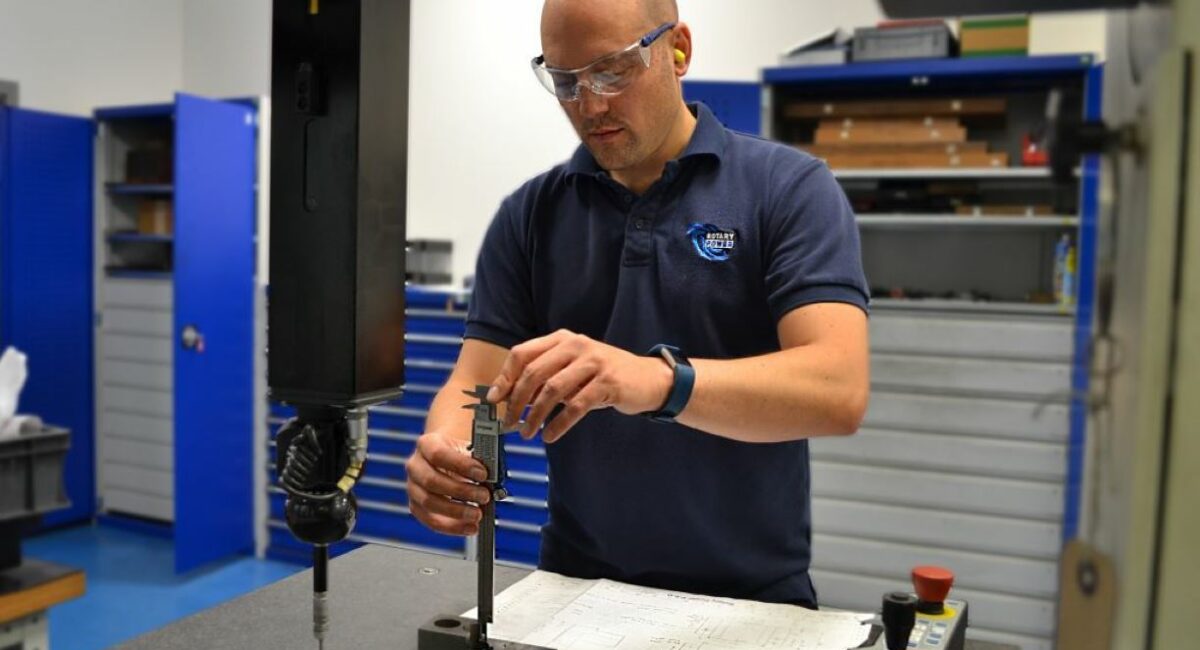Welcome to the British Engines blog! Tell us a bit about yourself?
Hi, I’m Adam and I’ll soon be coming to the end of a 12 month North East engineering industrial placement. This has taken place at Rotary Power in South Shields, which is part of the British Engines Group.
In September I’ll return to finish the final year of a Mechanical Engineering degree at Newcastle University. Prior to university I worked for various portfolio management companies in Newcastle. However, having long held an interest in engineering, I decided to return to university as a mature student to re-train.
Why did you choose a British Engines north east engineering industrial placement?
I was already aware of British Engines’ blue-chip reputation. And then in 2016 the university assigned them as my mock interviewer.
Subsequently I approached HR who arranged an interview. In preparation for the interview I read about British Engines and Rotary Power online. I then sought out acquaintances that I thought may have some first-hand insight into the group.
British Engines is a family-run organisation and that really appealed to me. Seeing so many family members work alongside each other is surely an endorsement for any company.
What did your role involve and what was the most exciting thing you worked on?
My primary objective was to update the work-holding jaws system by transferring the old hard copy drawings to an electronic SolidWorks model.
The jaws are typically three blocks of steel. They are designed to sit in the CNC machine and grip components such as a steel billet. For this purpose they need to be machined to the incredibly precise specifications.
Many of the drawings contained atypical angles or missing dimensions. The basic geometry and trigonometry I learned at university frequently came in handy.
In addition to this, I was tasked with implementing a new system. The system’s for submitting newly machined jaws to the company’s automated storage facility. This meant enabling a more effective search for existing jaws.
The team in the production engineering office were very supportive, my line manager in particular. Beyond this I spent a couple of weeks assisting in the layout of a proposed new production cell. This was designed specifically for the manufacture of pumps used in the fracking industry, which I found very interesting.
You’re a mature student at university, how was your experience as one of our a British Engines interns?
Being a mature student possibly helped me settle more quickly. Especially more than if I had been of the typical student age, insofar as working with colleagues my own age. Having previous work experience within a large organisation, albeit in a different sector, also meant I was accustomed to the typical culture and expectations of the workplace.
What have you learned that will help you when you go back to university?
As a resul of observing my colleagues on a daily basis, I’ve learned from the ground up what the requirements of a professional engineer are. My CAD skills are better than before, and I’d like to think I have further developed my team-work abilities.
Has your experience at British Engines altered your perceptions of working in the engineering industry?
It has opened my eyes to how unpredictable a process can be, in terms of the various challenges that can arise on a daily basis, and the flexibility required to deal with them.
What would your advice be to those looking for a North East engineering industrial placement at British Engines?
The actual on-the-job experience is in many ways more valuable than the theoretical learning undertaken at university beforehand. I would highly recommend some time spent on the production side of things and shop floor, as well as the design process. I think this helps get a clearer understanding of the journey from design through to final product.
What are your plans for the future?
I would be very interested to learn more about the British Engines Graduate Scheme. Whether at Rotary Power, or elsewhere in the group. Having spent a year here and completed my studies, I would hopefully be able to hit the ground running.
Further down the line I’d like to work in the renewable energy sector. Ideally developing devices in less established areas such as wave energy. I think many of the skills I’ve learned at Rotary Power, both in terms of design and production would be transferable to an industry also dealing mainly in fluids and moving parts.
If you’re interested in finding out more about our placements, contact us, or if you’re wondering why choose a North East based engineering placement with British Engines? Read Sam’s story.
